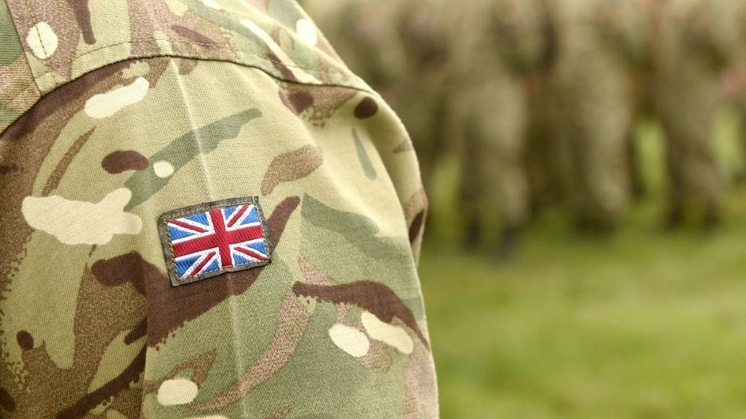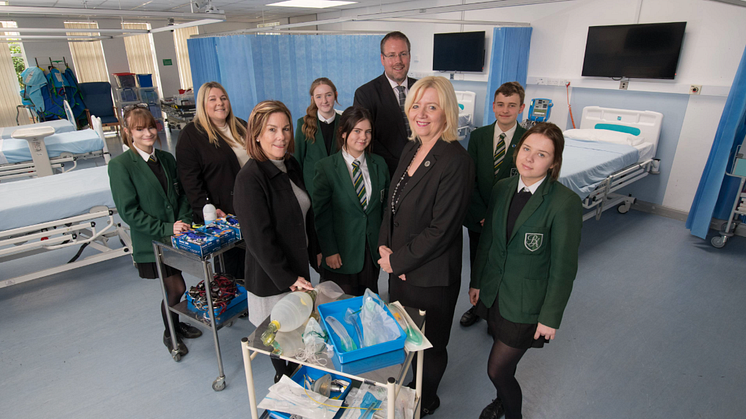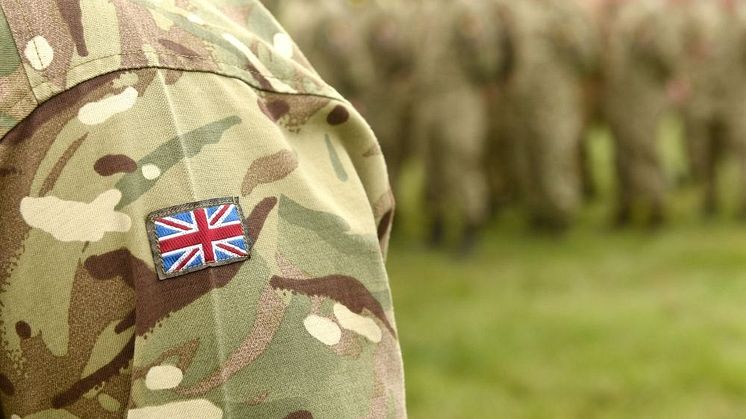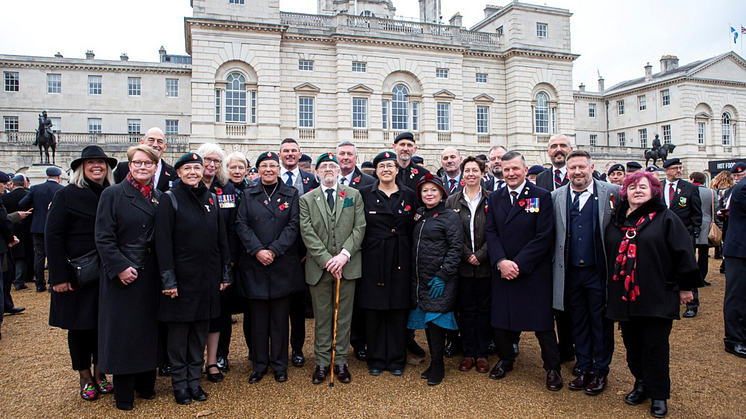
Press release -
New framework will help prevent suicide among military veterans and serving personnel
Researchers at Northumbria University are calling for better measures to be put in place, across the National Health Service (NHS) and military mental health specific charities, to prevent serving military personnel and veterans from taking their own lives.
A new report, led by academics from The Northern Hub for Veterans and Military Families Research at Northumbria, identifies that suicide among serving military personnel and military veterans – many of whom were known to services and recipients of care - could be reduced if those that were known to be vulnerable had access to the right help and assistance, at the right time, with the right intervention, and the right level of care and support.
The findings come from the report ‘One is too Many: A Conceptual Framework for Safety Planning within Service Delivery for Veterans and their Families’, a project funded with a grant from the Armed Forces Covenant Fund Trust’s "One Is Too Many" programme, which awarded grants to projects that aim to reduce suicide risks within vulnerable veterans in a coordinated and targeted way.
As well as in-depth interviews with serving military and veteran’s families bereaved by suicide, contributors to the new research included representatives from the health and social care sector, statutory agencies, third sector organisations, politicians, retired military personnel, funding agencies, and other critical stakeholders. This method of co-production identified three main aspects that would improve care provision for serving military personnel and veterans. These were a person-centred care approach, the need for a designated individual within the service provider to act as a single point of contact for the veteran and their family, and a centralised care service that would provide holistic support for the veteran and their family.
As part of their findings, the research team has produced an integrated toolkit for government, the NHS and military charities. The aim of this toolkit is to assist them in identifying gaps in care delivery and helping them build safer environments in which veterans and their families can be cared for. Researchers carried out in-depth interviews with military families across the UK who had been bereaved by suicide, capturing the detailed stories of families who have tragically lost their loved ones.
Multiple families repeated similar stories of being excluded and disconnected from support systems. This leads to further re-traumatisation and a compound effect in grief and mourning the loss of loved ones. According to the report’s lead author and Director of The Northern Hub for Veterans and Military Families Research, Professor Matthew Kiernan, this needs to change.
“These interviews identified critical problems with care delivery in the families’ stories,” he said. “Families strongly felt that they were not being heard, understood, valued, cared for, nor sufficiently empowered to be any part of care provision in terms preventing the loss of their loved one”.
“Many of them witnessed first-hand the slow decline of their loved one’s wellbeing – and felt helpless, and powerless in preventing what they saw as an inevitable outcome. Families’ experiences were that of passive care, often disjointed, uncoordinated, with frequent deficits in understanding and expected levels of compassion and active engagement”.
“As we move forward it is imperative that vital lessons are learnt here, and it is essential that families play a key role in their loved ones’ care provision.”
Researchers acknowledged the pressurised conditions that health service workers are under, with the study identifying significant evidence of compassion fatigue; – a complex consequence of the impact of helping others who have experienced stress or trauma. This is why the team at Northumbria have produced a toolkit as a self-assessment tool that will support the NHS, military charities and wider government departments in creating a safe environment which is focussed on training and education, improving services, strengthening resources, enhancing protective factors, and challenging stigma with both the serving military/ veterans and their families at the centre of care and intervention.
Dr Paul Watson, Assistant Director of the Northern Hub for Veterans and Military Families Research, said: “Clearly, there is insufficient understanding within the existing care provision around the journey towards suicide, and what systems and procedures need to be in place to identify, understand, and prevent death by suicide in this important population and beyond”.
“Promoting better levels of education and training is essential moving forwards.”
The stigma of negative attitudes, beliefs, and stereotypes is also harmful within the military and veterans’ population, often creating barriers to seeking help and resulting in potentially devastating effects. Enhancing better military/veteran-focussed mental health awareness which directly challenges the stigma of death by suicide is essential and the dual focus of client-centredness and family inclusivity is imperative, according to the report.
An Office for Veterans' Affairs spokesperson said: “Every veteran suicide is a tragedy. We welcome this research by Northumbria University, and will review it as part of our continued work to ensure veterans across the UK can access the right support.
"As part of our commitment to support veterans, Op COURAGE, our bespoke mental health pathway for veterans in England, is backed by over £21 million a year investment, which has seen over 35,000 referrals since it started."
A copy of the report, ‘One is too Many: A Conceptual Framework for Safety Planning within Service Delivery for Veterans and their Families’, can be found on the Armed Forces Covenant Fund Trust website.
Visit the Northern Hub for Veterans and Military Families Research’s webpages to find out more about their work to improve the health and social wellbeing of veterans and their families.
Northumbria University is dedicated to reducing health and social inequalities and improving social, economic and health outcomes for the most marginalised in society. Through its new Centre for Health and Social Equity, known as CHASE, researchers will be delivering world-leading health and social equity research and creating innovative, evidence-based policies and data-driven solutions to bring impactful change across the region, the UK and globally.
Topics
Categories
UNIVERSITY OF THE YEAR 2022 (Times Higher Education Awards)
Northumbria is a research-intensive university that unlocks potential for all, changing lives regionally, nationally and internationally.
Two thirds of Northumbria's undergraduate students come from the North East region and go into employment in the region when they graduate, demonstrating Northumbria's significant contribution to social mobility and levelling up in the North East of England.
Find out more about us at www.northumbria.ac.uk
--- Please contact media.communications@northumbria.ac.uk with any media enquiries or interview requests ---












